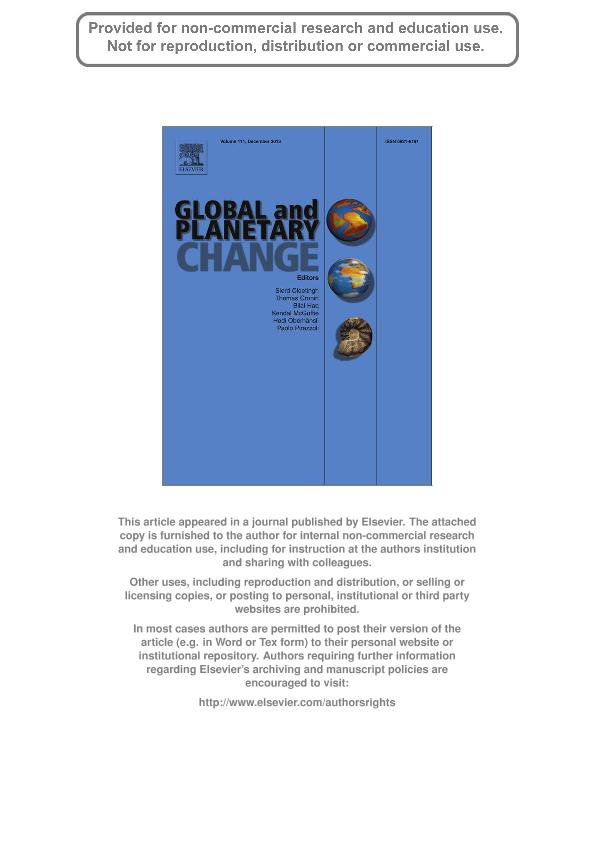Artículo
Cold air intrusions over southeastern South America - GFDL model behavior regarding climate simulations in the 20th century and future projections
Fonseca de Albuquerque Cavalcanti, Iracema; Muller, Gabriela Viviana ; Andrade, Kelen M.; Fernández Long, María Elena
; Andrade, Kelen M.; Fernández Long, María Elena
 ; Andrade, Kelen M.; Fernández Long, María Elena
; Andrade, Kelen M.; Fernández Long, María Elena
Fecha de publicación:
12/2013
Editorial:
Elsevier Science
Revista:
Global and Planetary Change
ISSN:
0921-8181
Idioma:
Inglés
Tipo de recurso:
Artículo publicado
Clasificación temática:
Resumen
Cold air intrusions in three areas frequently affected by frosts of southeastern South America are analyzed based on GFDL-CM2.0 Coupled Atmospheric and Oceanic Global Circulation Model. The general objective is to investigate the model ability to simulate the frequency of intrusions in the present climate as well as the changes in the frequency of occurrence and atmospheric characteristics in a future climate scenario. The cold period (May to September) is analyzed for the control period 1961 to 1990 and for the period 2081 to 2100 from the CMIP3 A2 scenario, which reflects the extreme global warming. The coupled GFDL-CM2.0 overestimated the number of cold air intrusions for the present climate (control). This systematic error should be considered in the analyses of future climate results. Future projections indicated a reduction of these cases in GFDL results. As this model overestimated the number of cases, the reduction could be even greater. Composites of extreme cases for the present and future climate in the three areas indicated intensification of the temperature gradient which suggests more vigorous frontal systems, intensification of post-frontal highs and cold air extending to lower latitudes as compared to the present climate. Anomaly intensification was related to the climatological mean temperature, which is higher in the future than in the present. Therefore, even with less cold air intrusion over southeastern South America and a lower number of frost cases in the three areas, the occurrence of more intense systems would have an impact on the agriculture of these areas and such impact would extend to lower latitudes.
Archivos asociados
Licencia
Identificadores
Colecciones
Articulos(CICYTTP)
Articulos de CENTRO DE INV.CIENT.Y TRANSFERENCIA TEC A LA PROD
Articulos de CENTRO DE INV.CIENT.Y TRANSFERENCIA TEC A LA PROD
Citación
Fonseca de Albuquerque Cavalcanti, Iracema; Muller, Gabriela Viviana; Andrade, Kelen M.; Fernández Long, María Elena; Cold air intrusions over southeastern South America - GFDL model behavior regarding climate simulations in the 20th century and future projections; Elsevier Science; Global and Planetary Change; 111; 12-2013; 31-42
Compartir
Altmétricas



